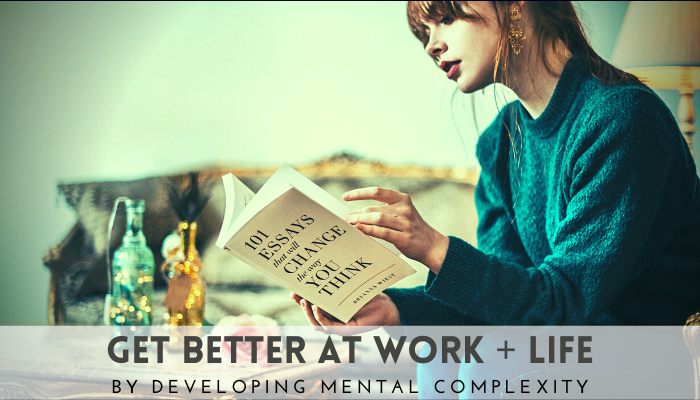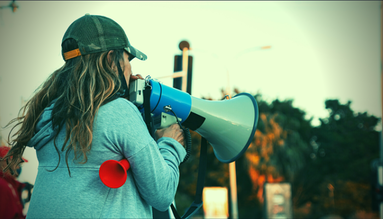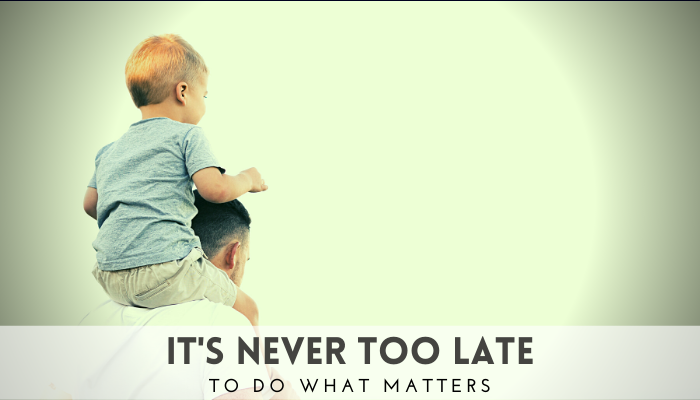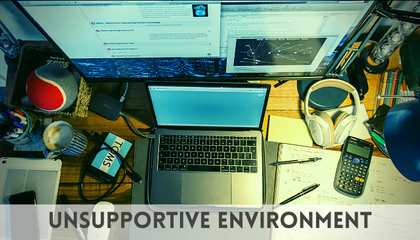|
Photo by Thought Catalog on Unsplash Contributed by Layla Wyatt The Australia and New Zealand School of Government suggests that mental complexity might be the key to unlocking better performance at work and a better quality of life. The more you understand your motivations, goals, thoughts, and emotions, the better equipped you will be to achieve your ambitions. "No one knows for sure, but many believe that having high mental complexity can confer several advantages in both work and life. This is because mentally complex individuals tend to be strategic thinkers, able to multitask and process multiple streams of information, which is a big asset to the workforce, especially in business industries," says business funding expert Shane Perry of Fund Spot—Australia's top provider of business funding solutions One facet of mental complexity is how individuals relate to the outside world and themselves. It depends on whether they can differentiate between the thoughts and feelings that they have and the thoughts and feelings that "have me." Developing mental complexity skills can benefit your personal and professional life. Here are some ways in which mental complexity can help you 1. Improved Decision Making Mental complexity can enhance your ability to consider multiple perspectives, anticipate potential outcomes and evaluate alternatives. This can lead to improved decision-making by enabling you to make more informed and effective choices. 2. Improved Ability To Work Through Difficult Situations Having a higher level of mental complexity can enhance your ability to work through difficult situations by enabling you to consider a broader range of perspectives, analyse complex information more effectively, and devise creative solutions to problems. This can lead to greater adaptability, resilience, and success in personal and professional settings. 3. An Increase In Clear And Effective Communication
4. Enhanced Capability Of Adapting To Changing Circumstances Mental complexity can enhance your capability to adapt to changing circumstances by enabling you to consider multiple perspectives and solutions. A more complex understanding of the world may better equip you to navigate unexpected challenges and identify opportunities for growth and learning. 5. Improvements To The Working Experience A greater mental complexity can lead to an enhanced working experience. This complexity allows individuals to think more critically and creatively, leading to better problem-solving skills and the ability to approach tasks from various angles. Start Developing Your Mental Complexity Developing mental complexity is not an overnight process but a critical component of personal growth and development. To start, expose yourself to different ideas and perspectives, seek diverse experiences, and challenge your assumptions and beliefs. It is also advisable to seek some help and guidance from professionals.
Blue Chip Minds established existing programs such as The Superior Thinkers Toolbox, Life Reloaded and The Future Ready Leader's Toolkit to inform people about what science is learning about the human condition and our untapped potential. We demonstrate to participants how to connect various maps, models and tools and use the concepts professionally and personally. Our method results in genuine transformation, increased mental complexity, long-lasting behavioural modification, and attitude adjustments. Contact us for more information. Do you find yourself pulled between your personal desires or responsibilities and doing what needs to be done for your business or career? In the early 2000’s while managing over one hundred and fifty staff spread across more than forty-one thousand square kilometers, (without Zoom or MS Teams) I was introduced to the concept of work life balance, and I began instilling the idea with the team. It sounded like a great theory at the time, especially with early mornings and late evenings after driving from location to location to visit team members. But with hindsight and knowledge backed by personal experience I came to understand that to obtain true work life balance, a 50/50 split, was not only impossible but trying to achieve it was creating unnecessary stress… kinda defeating the purpose. In the world we woke up in today, things are vastly different than twenty years ago, we can access work from personal devices, and connect with team members across multiple time-zones with the click of a mouse and more of us are choosing to work from home making it so much easier for our focus to be hijacked by less important and often trivial distractions. This can have a detrimental flow on effect on our productivity, relationships and performance as we unconsciously relegate the things that matter the most to the ‘I’ll get to that later’ list. In the leadership programs we run, there is a fun and often tormenting activity we do where participants are forced to let go of the things they believe are important to them in order to get to what really matters most… One by one we witness managers and leaders letting go of their gym memberships, their barista brewed coffee, their nightly glass of wine, their entertainment subscriptions, their hobbies, and even personal freedom is sacrificed as they narrow down to the one thing that matters most to them. Do you know what 98% of participants declare as their most important thing, what they couldn’t live without? It’s Family! If you find yourself doing things that are not important, or chipping away at outdated processes, maintaining unproductive habits that take you further and further away from what matters most to you or heck, you may still be trying to achieve the impossible 50/50 work life balance, you know, feeling guilty at home on the days when work needs to be a priority and thinking you’re in the wrong, or your reputation will be ruined, when personal and family commitments impact your work. It doesn’t have to be this way, you can equip yourself with cutting edge tools to help you navigate the demands of the day, increase productivity, and focus on what matters. I know it can be painful doing things that are not working for us and at the same time not having the knowledge to push back confidently and intelligently on the things that negatively impact our well-being, relationships, goals, values, and time. Before learning or sharpening the tools that will help you do more of what matters… you may want to first understand the 6 most widely experienced derailers I see people from all walks of life struggle with. After 20+ years of diving into the fields of human potential, mindset and neurobiology and psychology combined with 1000’s of hours coaching I noticed common traps we all unwittingly fall into when it comes to getting to the things we really want to do or spending time with the people that matter most. If you are like me and want good results, I have no doubt that you know that to achieve results and perform at our best we need to be confident in our decisions, efficient in our thinking and productive with our time. This is easier said than done because no matter how hard we try to be productive and do what matters, there always seems to be people, situations, notifications, and that pesky inner voice that have the potential to distract and derail us. Derailer #1 - The People Pleaser What I have noticed both within myself in the past, and with coaching clients is the first issue we face. To put it simply, we want to please everyone. Being a people pleaser and not being able to say no effectively leads to doing things not aligned to our goals or doing things to keep other people happy or maintain an unhealthy peace. Derailer #2 - Wired to Avoid Change The second derailer comes from our neurobiology - we are wired to avoid uncertainty. This innate need to feel safe can slow down or even prevent decisions from being made. This leads to procrastination because we’re afraid to make a start or do things differently. We end up fighting against anything that takes us away from homeostasis, clinging to how things are or how things were, wired to stay in the safety of an outdated way of being. Derailer #3 - Unhealthy Habits We can look to biology to understand the third derailer. Derailer number three is our unhealthy well-being habits draining us of the energy we need to get things done. Our energy is derived from the type of food we eat, how much we move, and the quality of our sleep. These are all important factors that impact energy levels and our ability to do what matters, often giving preference to an easy task (think Netflix, gossiping or social scrolling) to match our low energy levels. Derailer #4 - Misaligned Identity The fourth derailer is a psychological one. When our subconscious identity is not aligned to the work we need to do we will unconsciously sabotage our efforts. When who we assume and believe we are is not aligned to who we need to be to get the work done we end up going in circles often reverting to our old ways. If you want to dive a little deeper into the power of your self-image, grab copies of Gay Hendricks book ‘The Big Leap', Chip and Dan heaths Book 'Switch' or Maxwell Maltz book ‘Psycho Cybernetics’. The deeply held beliefs you hold about yourself create a protective system that can sometimes lead to us sabotaging our efforts to focus on what really matters. Derailer #5 - Unsupportive Environment The fifth derailer is an environmental one. You can't be productive if your physical, social, or mental environments are unsupportive. To set yourself up for success in this area be sure to create an uncluttered space dedicated to the work that needs to be done. Ensure that you are socially supported by engaging in a coach or buddy to cheer you on and hold you accountable to delivering on your objectives. It is equally important that you create a supportive mental environment by choosing narratives that support your outcomes such as telling yourself things like:
In essence you’re giving yourself a pep talk to override any beliefs that suggest you don’t have the time, energy, or capacity. Remember: Your mental attitude will always influence you output. Derailer #6 - Distractions And sixth most common thing that derails us is distractions, and wow… the world certainly has turned up the volume on distractions and shiny objects, stealing our attention away from what’s important. Distractions big or small such as noise, notifications, interruptions from other people or pets, regularly checking emails or your phone. Anything that takes you away from what you are doing are the biggest derailers of productivity. These unwanted intrusions on our time slowly eat away at any hope we may have of consciously integrating our work with our life. Believe it or not distractions are the easiest to fix when you know how to set boundaries for yourself and for others. If you'd like some easy fixes to help you deal with distractions grab yourself a copy of Nir Eyal’s book ‘Indistractible’ Getting Back On Track What’s interesting about these six common derailers is that we can overcome all of them by overcoming the first one. Once we know how to say no in an enlightened way, we begin to help ourselves and others to let go of the things that no longer serve us and to focus on what’s important. We can set boundaries for ourselves to create healthy well-being habits, we can set clear limits and expectations as to the person that we want to become, we can say no to the things in our environment that get in the way of our best performance, and we can deliberately put measures in place to ensure we are not distracted from what matters most moment to moment. It’s up to you to get yourself on track and more importantly, stay there. The tools are available in books, podcasts, and courses. The first step is to determine what really matters to you, what’s your priority in any given moment then check to see which of the derailers are present. We know that knowledge alone doesn’t do a darn thing, so if you want support to kick any of your bad habits, outdated self-beliefs or fixed mindset to the curb… I’m opening up my diary to 6 people who are yet to experience Blue Chip Minds Coaching and who want to get back on track to join me for some complimentary 1:1 time in a 30min get me back on track session. So… what stops you most often?
Drop me a line, I’d love to hear what derails you and how you plan to get back on track. Here’s to you doing more of what matters. Contributed by Georgia Ellis Contributed by Georgia Ellis Deciding is one of the single most powerful mental moves you can make to help solve your problems. Your entire life is dictated by the decisions you make moment to moment. The health of your mind and body, the well-being of your family, your financial stability, your career success, how much a person will trust you and, the type of relationships you develop, all depend on your ability to make sound decisions. In the workplace 60% of two thousand executives surveyed reported that bad decisions were as frequent as good ones. When it comes to our personal lives people are making as many bad decisions as good one too. Consider the people who haven’t saved enough for retirement, and if they have ‘squirreled’ some money away, they often erode their portfolios with fear-based decisions or short-term payoffs. This was evident in Australia in 2020 when due to the global pandemic, people were given the option to access their superannuation savings to help meet their living requirements, yet some people withdrew the funds for hobbies, sports equipment, entertainment or to purchase a car. Ultimately decisions bring order to our mind, and this order is then reflected in our life. British philosophical writer James Allen wrote: “No one can see you making decisions, but they will almost always see the results of your decisions.” - James Allen I personally subscribe to the notion that we live and die by the decisions we make, and that for the most part we can rectify any ill-informed decisions. There are, however, people who make a decision and if they don’t get the desired results, they feel like a failure. The thing is, failing doesn’t make anyone a failure but being quick to throw in the towel when the going gets tough… well maybe that could be seen as failing. Pushing through or quitting are both decisions therefore any lack of accomplishment or high levels of achievement on your part are both the result of your decisions. What I find interesting about decision making is that we often think we make well informed decisions, yet the truth is, unless we have high levels of self and environmental awareness, we will neglect to consider the hidden influences both internal and external that unconsciously impact our judgements. Most of us don’t realise that our important decisions could be swayed by seemingly meaningless external factors. In the workplace judgements and decisions can be swayed by who spoke first in the meeting, what day of the week it is or whether the local football team won last night’s match. At home we could be swayed by the room temperature, whether we’ve eaten or how much sleep we had. Internal factors that can impede our decision making include subconscious programming that has formed certain biases over time, our unchecked assumptions, and our short-term emotions. These internal influences often move us away from rational and intuitive processing and lead to uneducated often bad decisions. Our hidden influences are rarely considered in our everyday approach to decision-making. When we encounter a choice, we tend to not entertain alternative options, often analysing our options through the lens of our confirmation bias which is only seeing information that we want to see. While our short-term emotion tempts us to make the wrong decision for the wrong reasons. Consider the times you made an irrational decision in a moment of anger, frustration or even during those warm fuzzy feelings of new love. We can make better decisions by bringing these hidden influences to the surface. A method I have been playing with in recent times has helped me to begin to recognise and lean into my biases and assumptions. And I’d love to share it with you here. When faced with a decision our incredible brains filtering system likes to point us towards the information that backs up our beliefs and values. As we consider our options and form our assumptions, the confirmation bias begins to block out information outside of our beliefs, leading us towards self-serving information. It’s at this early stage of the decision making process that I try to become aware that this is likely happening to me and I go about testing my assumptions. Testing Assumptions doesn’t come naturally. That’s the whole point of the confirmation bias—deep down, we never really want to hear the negative information. When testing assumptions, the aim is to collect information that you can trust however the confirmation bias skews your assessment by making you prefer one option over another and homing in on favourable data. To overcome this blind spot, you can develop the discipline of considering the opposite of your initial instincts. (I’m trying to build this muscle and boy oh boy the confirmation bias force is strong) You can also test your assumptions by asking yourself this simple question: “Is what I’m assuming happening 100% of the time to 100% of the population?" You can also test assumptions with constructive disagreement either with another person, or if your critical thinking is dialed up, pull out your journal and disagree with yourself. A curious mindset is super helpful too, you can dial up your curiosity by asking yourself and other people probing and open-ended questions to uncover information that your biases had previously blocked. Our assumptions and confirmation bias doesn’t just affect what information we go looking for; it also affects what we notice in the first place. (Damn our brains are clever at making us see what we want to see!) Depending on the importance of your decision, you can challenge your assumptions with formal well conducted research. This type of research is a learned skill; it is challenging, nuanced, complex and time consuming. Most of us don’t have the time, skills, or desire to do proper research. Most of us have become lazy, relying on gossip, information from less than credible sources, social media feeds and the mainstream news for information to help inform decisions that in some instances can have far reaching and negative effects on our results and wellbeing. Ultimately, it’s up to you to determine the level of due diligence your decision requires, choosing what vacuum cleaner to purchase, deciding if you want to be the first to trial a medical procedure, or contemplating whether to take a job that requires uprooting the entire family and taking them to a foreign country all involve different levels of research (Unless you’re like me who spent way too long researching a recent vacuum cleaner purchase!) If you do choose to conduct research, it’s helpful to know what formal research isn’t. Formal Research is Not:
This type of ‘fact finding’ is confirmation bias. Any of these sources are quickly and easily ruled out when doing actual formal research. Beware of google algorithms, they too are heavily biased to point you in the direction of your search history. When a decision requires accurate balanced research, it’s important that you apply critical thinking to discern the facts from the fiction. You can do this by:
When faced with important decisions the type of analysis and research you do will help you to make better decisions. A healthy dose of scepticism can be a good thing especially when applied to the things we believe or want to be true, and not just to those things outside of what we believe.
Decisions can range from simple, to complicated, to complex and in our faced paced world we need to develop a level of awareness that moves us away from our entrained thinking and conditioned responses. We must widen our perspective so that we aren’t blinded to new ways of thinking and stop thinking that our 'expertise' means we always know what the best decision is or what is the right way forward. The truth is none of us have a crystal ball and we’re all making the best decisions we can with the information we have… just do your best to source reliable and credible information for the decisions that matter to you. |
Authors
Our Contributors are a mix of passionate and switched on Humans ready to share their, career, business, well-being, leadership and performance insights with you so you can be the architect of your own extraordinary future! Archives
May 2024
Categories
All
|
Global professional development solutions for individuals and organisations.
Working with Individuals and organisations in;
Australia | Singapore | Hong Kong | United States | India | United Kingdom | Dubai | China | Poland
Malaysia | New Zealand | Japan | Belgium | Austria | South Africa | Brazil | Canada
Working with Individuals and organisations in;
Australia | Singapore | Hong Kong | United States | India | United Kingdom | Dubai | China | Poland
Malaysia | New Zealand | Japan | Belgium | Austria | South Africa | Brazil | Canada
|
We acknowledge the Traditional Custodians of the land on which we live, work, meet and play. This most often is the Wurundjeri people. We pay our respects to Elders past, present and emerging of the Kulin Nation. We extend gratitude and respect to Aboriginal and Torres Strait Islander peoples and global indigenous cultures for their incredible wisdom, resilience, deep connection to the natural environment and their deeply transformative spiritual practices.
We have so much more to learn from you. |
Copyright © All Rights Reserved BLUE CHIP MINDS 2013 - 2021











 RSS Feed
RSS Feed
